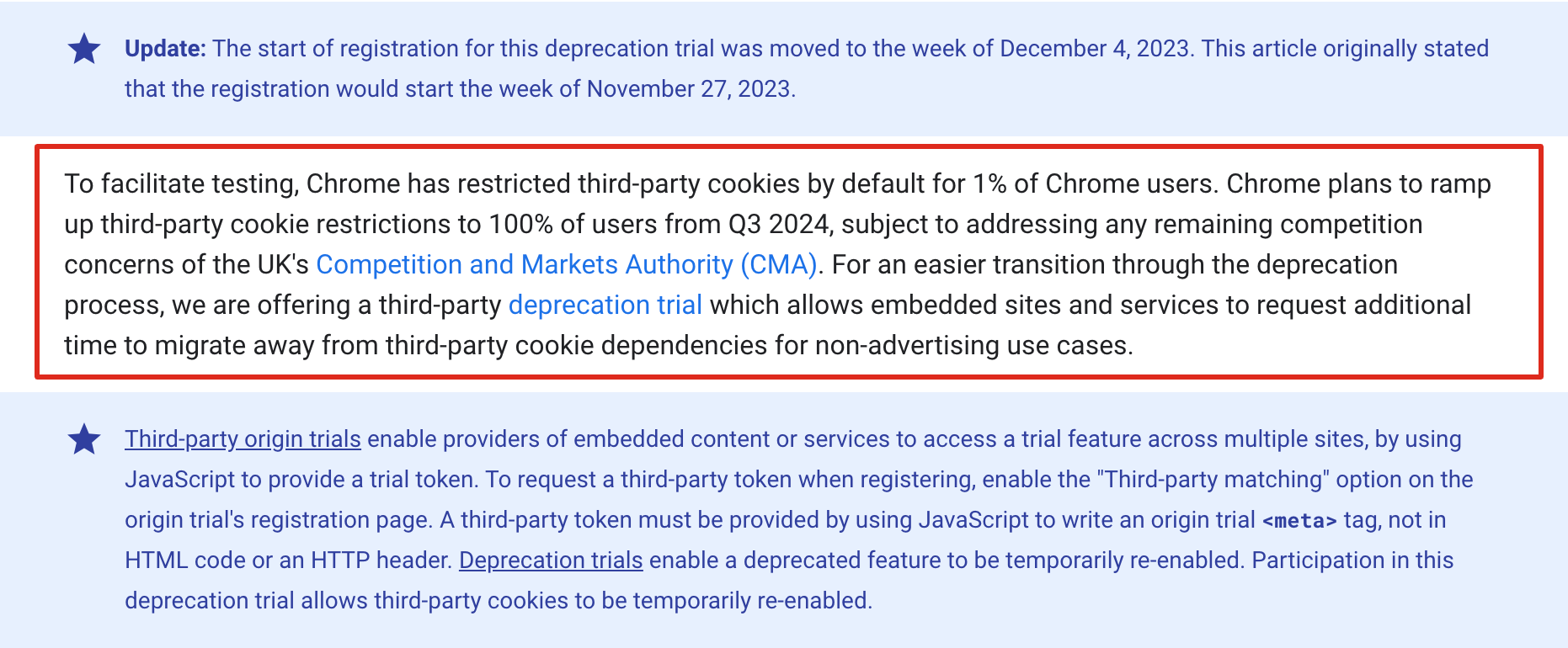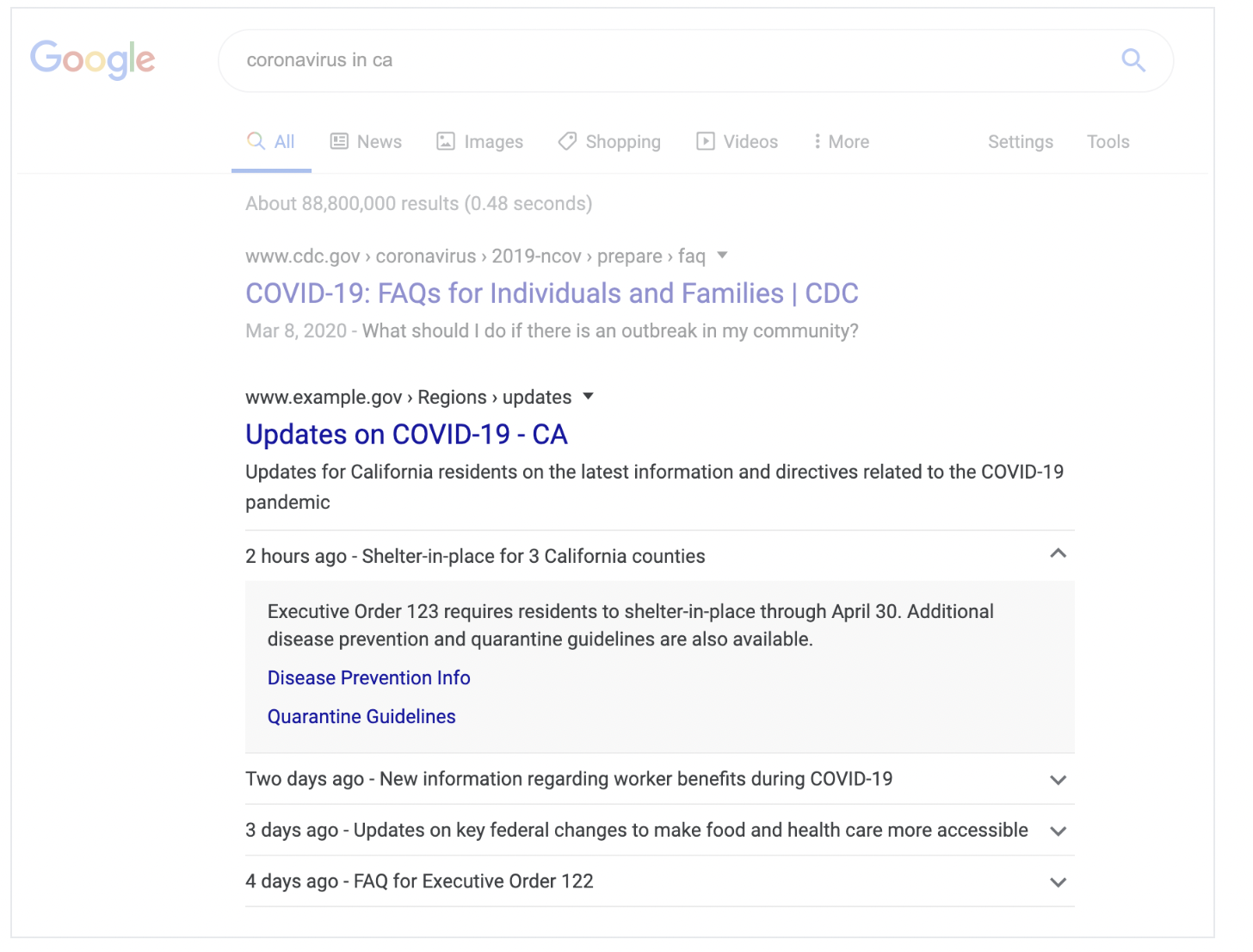/
SEO
/
0 min read
Search Engine Recap - Week 3 (2024)
Every week we review the status of search engines, diving into the latest news and updates. This week, we cover some of the first updates that have come in this year. Welcome to week 3.

We're about to wrap up the third week of the year 2024, which hopefully has given most people a chance to settle in after the New Year. This seems to be the case when looking at the news from search.
The year has generally started off quietly, with things only now beginning to pick up again. Here's an overview for you.
Google Updates Guidelines on Snippets
Google has updated its guidelines on how search snippets are selected. This could impact how meta descriptions are created and content is optimized.
A website appears in search results with a title, a URL, breadcrumb, and one to two sentences about what the page is about. The latter part is also known as a snippet, and can be defined as a brief description - a teaser, if you will - about what a landing page is about.
Traditionally, this snippet would draw from the meta description. However, this is no longer a habit we see in the same way.
Therefore, Google has updated its Search Central documentation to clarify that the content on a page is the main source behind where a snippet comes from. The update also makes it clearer that structured data and meta descriptions are not the main source for a snippet.

What This Means for You in SEO
Many online guides offer misleading advice on how to best update your meta descriptions. Some suggest using them as advertising content and include the most important keywords in bold text.
This must be seen as outdated advice. Adding keywords to a meta description is not the most important thing (since meta descriptions are not a direct ranking factor), and too much advertising or keyword optimization in meta descriptions will result in Google not using this description as a snippet.
So, focus on the primary content when it comes to snippets - Google may only use the meta description.
Google Eases Restrictions on Third-Party Cookies in Chrome
Google has adjusted the restrictions on third-party cookies in Chrome, affecting 1% of users from January 2024 and will reach 100% by Q3 2024.

To ease the transition, Google has introduced testing phases that allow temporary access to third-party cookies for certain services under strict criteria.
This development is significant for businesses that rely on third-party services or cookies, and underscores the need to review cookie usage on the site and plan alternative solutions.
Google Updates on Structured Data for Special Announcements
Google has updated the ‘SpecialAnnouncement’ structured data. Originally created for Covid-19-related announcements, Google has now expanded its use.

The changes include removing several Covid-19 references and generalizing the language to include a broader spectrum of special announcements. Although the structure is still in beta and primarily focused on local medical-related events, it is clear that Google is expanding its use beyond just Covid-19-related content.
Google Clarifies the Role of Author Profiles
Today, it is well known in SEO that it is important to have a good author profile (author byline), so users can see who is behind the content, which ultimately supports E-E-A-T.

However, this has also led to misconceptions that author profiles should be a ranking factor for Google's search results - they are not.
Despite common misconceptions, Google SearchLiaison has stated that author profiles are for the benefit of readers, not to influence search results. Quality content can rank well regardless of the presence of author profiles.
This distinction is particularly relevant for us in SEO, as it highlights the focus on creating high-quality content rather than relying on bylines for improved search results. Something that naturally also makes sense when considering the purpose behind it.
An author profile in itself cannot answer a search on Google; it is the content itself that must do so, which is why ranking factors should also be found here. The author profile contributes to transparency and trust between users and businesses.
Brave Search with New functionality
Brave Search, a relatively new search engine with 1% of the market, has introduced a new AI feature called CodeLLM.
The function improves search results for programming-related searches and combines Brave's search capabilities with large language models (LLMs) and delivers relevant snippets of code, detailed explanations, and citations for programmers' searches.

Despite Brave Search being a minor player in search, it is among many newer search engines that will challenge Google's position in the market. It will therefore be exciting to follow the development in the coming time.
Takeaways and Recommendations
The search engines have gotten off to a start for the year and have begun their ongoing improvements and updates.
The key takeaways here are that Google, with its size, is naturally the one leading the development. Over the past few days, we have seen updates on snippet guidelines and structured data - and it has been clarified how we should understand author profiles.
These updates underscore the importance of keeping up with the development, so we do not get lost in old and partly misleading recommendations from various articles on the internet.
Finally, Brave Search has entered the arena with AI updates to its search engine, which we will likely see more of this year, as we consider search engines broadly. Google will not be alone in the development, even though they are obviously the biggest when it comes to market share.

CPO & Partner
Thomas is the CPO (Chief Product Officer) and Partner at Bonzer, which means his day-to-day focus lies in constantly analyzing Google's algorithm and developing SEO as a product. Thomas has worked with SEO for several years with a strong passion for sharing his knowledge on how businesses can best implement SEO into their operations. In addition to Bonzer, Thomas contributes his expertise to readers at publications like Search Engine Journal, DanDomain, and Detailfolk. He also teaches Digital Media Strategy at Copenhagen Business School and SEO at DMJX in Copenhagen. If you have any questions or requests regarding the SEO universe, feel free to contact him at [email protected].

Let us show you an SEO strategy that can take you to the next level
A brief meeting, where we review your position in the market and present the opportunities.
Let us show you an SEO strategy that can take you to the next level
A brief meeting, where we review your position in the market and present the opportunities.